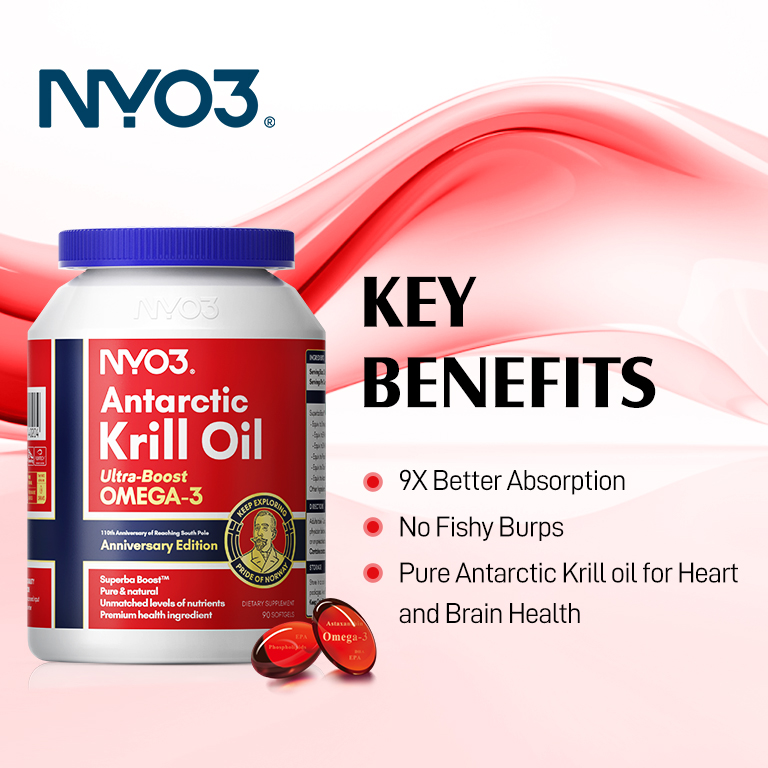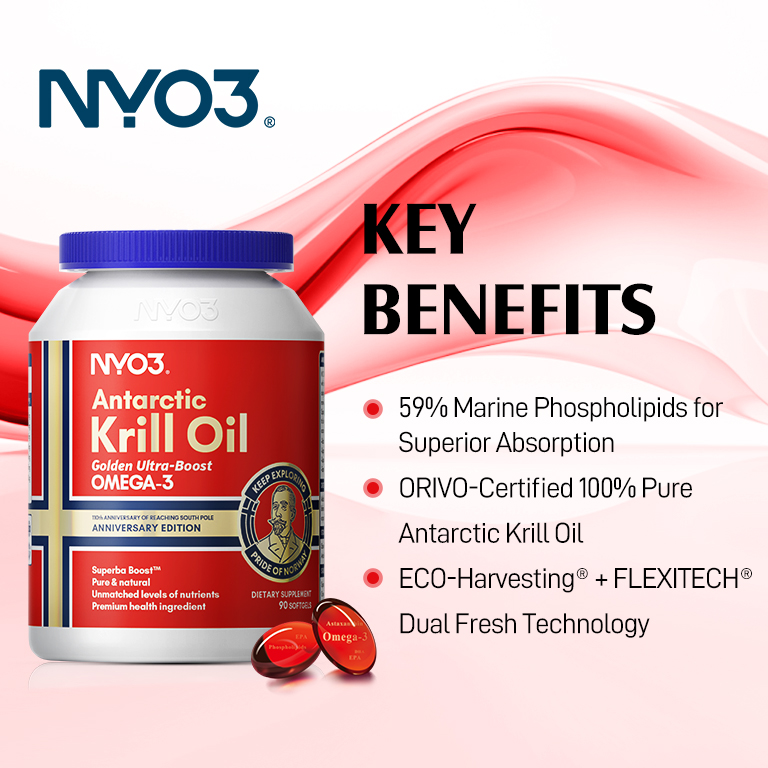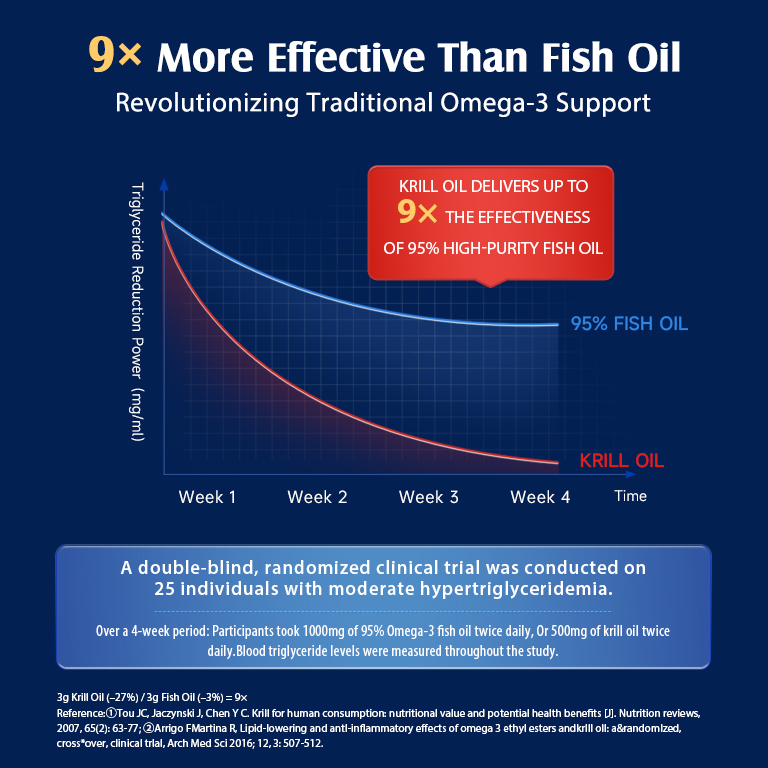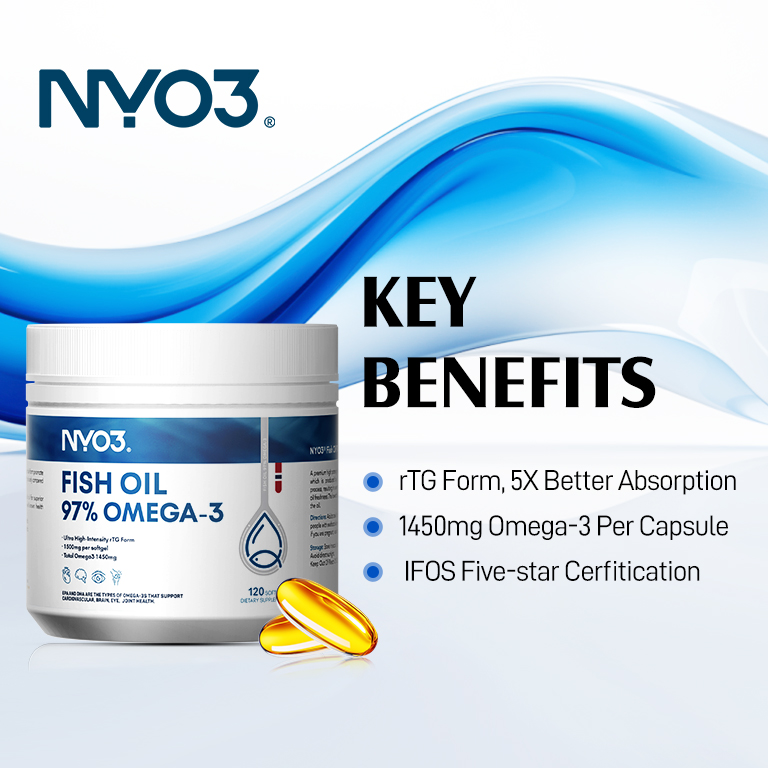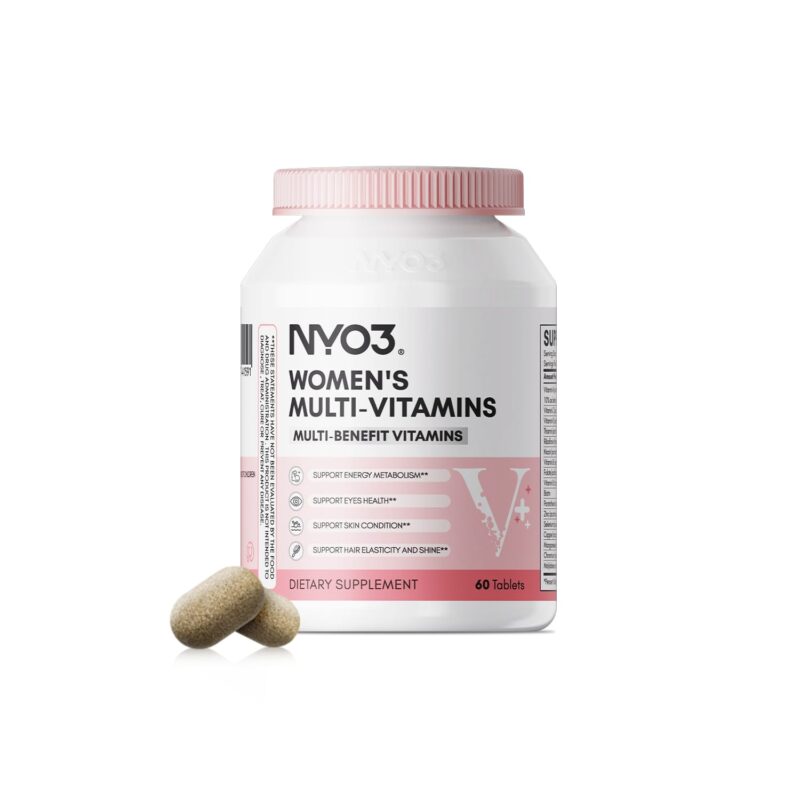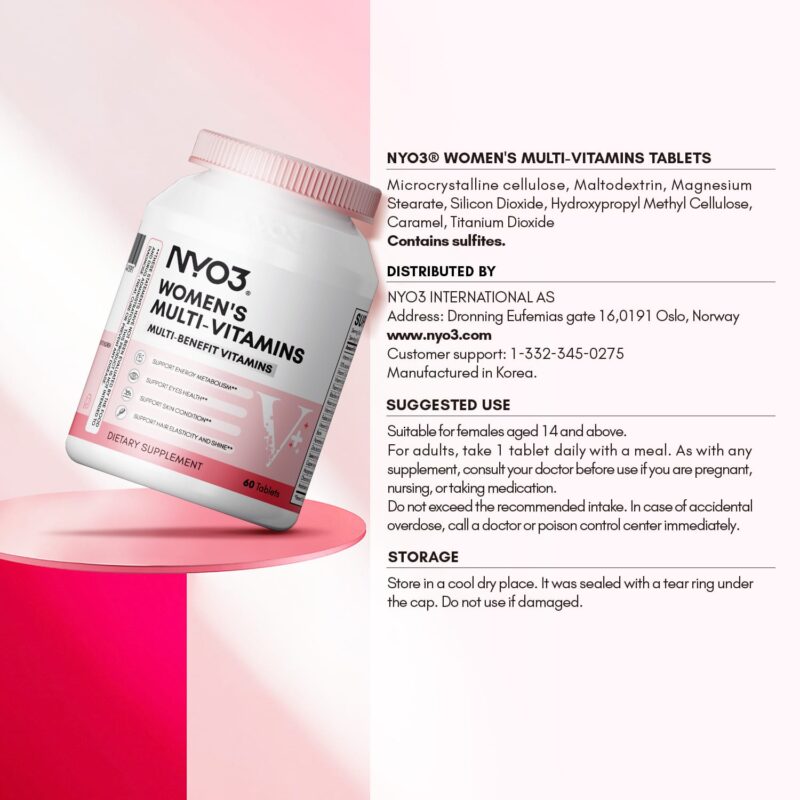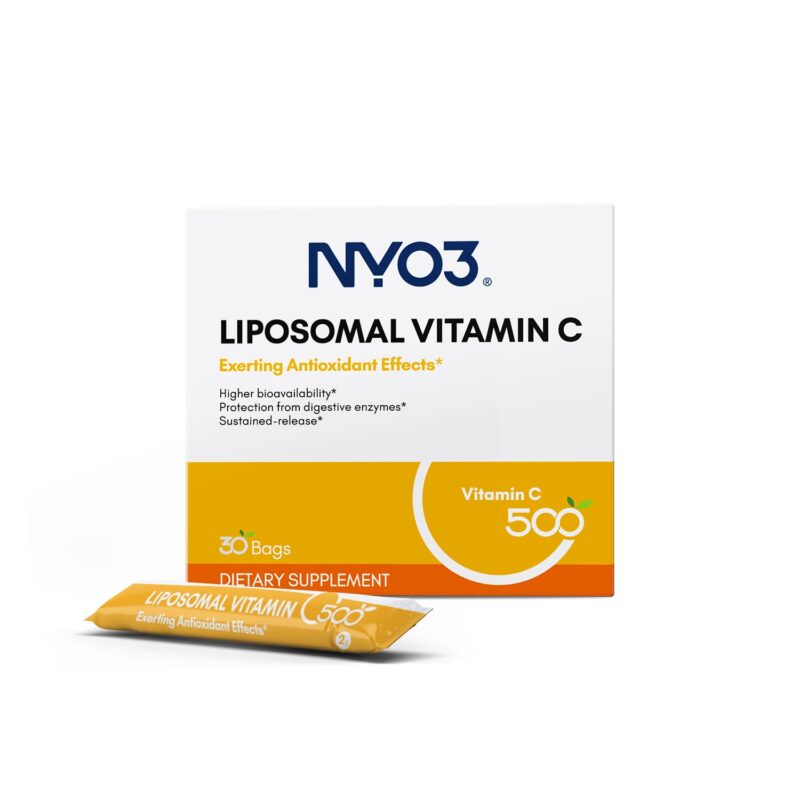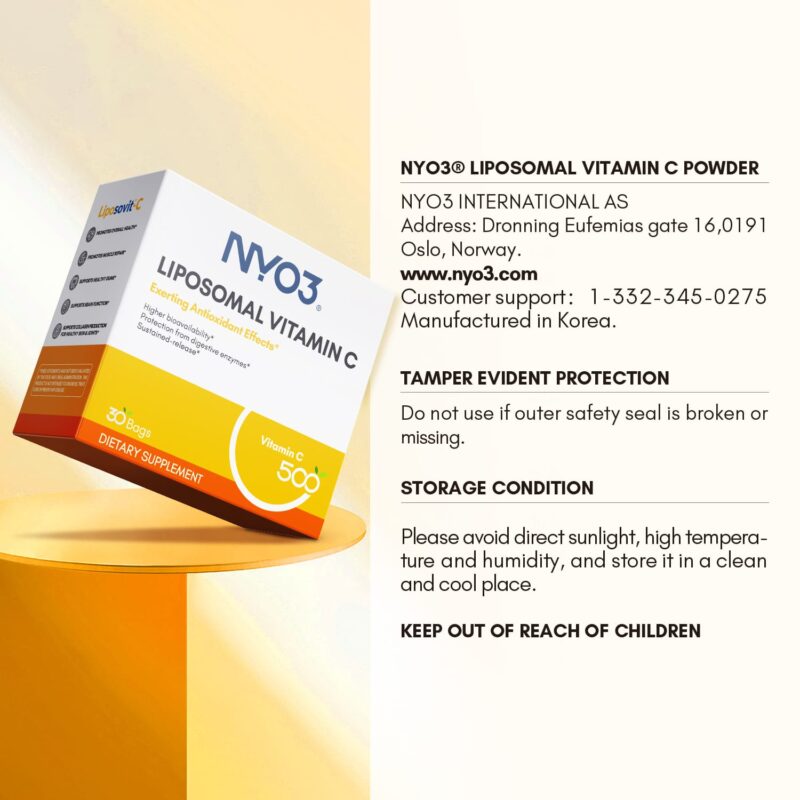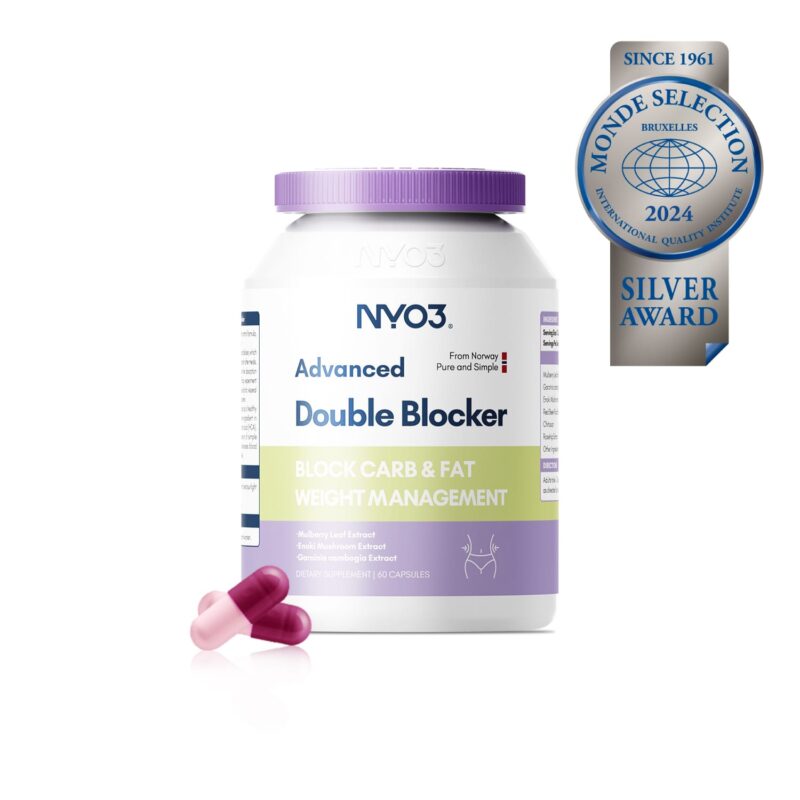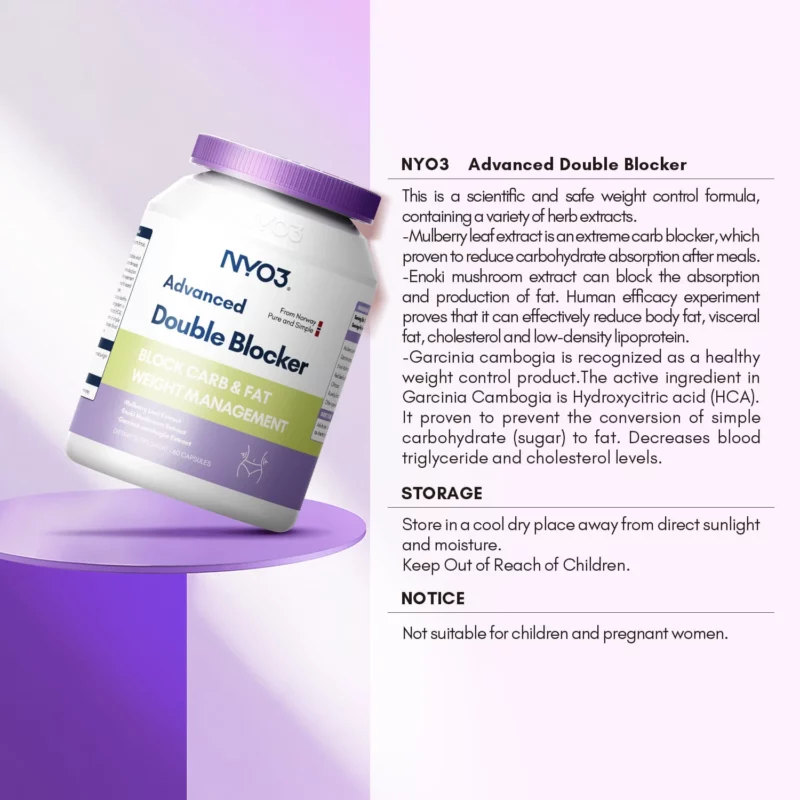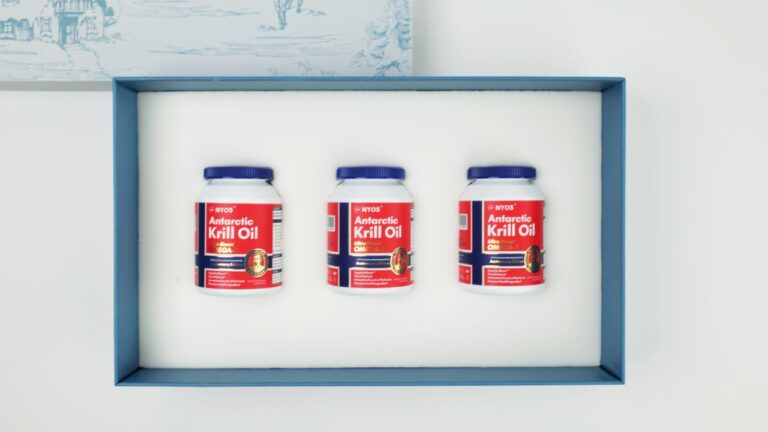Krill Oil 101: Health Benefits, Side Effects, and More.
Krill oil has gained attention as a nutritional supplement in recent years. It comes from tiny crustaceans called krill that live in cold ocean waters. Many people take krill oil for its omega-3 fatty acids, which may offer health benefits.
Krill oil contains omega-3s in a form that may be easier for the body to use compared to fish oil. The omega-3s in krill oil are bound to phospholipids, while in fish oil they’re typically bound to triglycerides. This difference in structure could affect how well the body absorbs and uses the omega-3s.
Some studies have looked at how krill oil affects cholesterol levels. Researchers have also studied its effects on inflammation in the body. While more research is needed, early results seem promising for krill oil as a nutritional supplement. Those interested in trying krill oil should talk to their doctor first.
What Is Krill Oil
Krill oil is a marine oil extracted from tiny crustaceans called krill. It contains omega-3 fatty acids and other beneficial compounds. Krill oil has gained attention as an alternative to fish oil for its unique composition and potential health benefits.
For NYO3® krill oil supplements, we use Superba 2® and Superba Boost® as our main ingredients designed to deliver tailored health benefits.
Source and Composition
Krill oil comes from Antarctic krill, small shrimp-like creatures found in cold ocean waters. These tiny crustaceans are a key part of the marine food chain. The oil is extracted from krill and contains omega-3 fatty acids, primarily EPA and DHA.
A unique feature of krill oil is that its omega-3s are bound to phospholipids. This structure may help the body absorb and use these fatty acids more easily. Krill oil also contains astaxanthin, a powerful antioxidant that gives it a reddish color.
The composition of krill oil includes:
- Omega-3 fatty acids (EPA and DHA)
- Phospholipids
- Astaxanthin
- Other antioxidants
Comparison With Fish Oil
While both krill oil and fish oil provide omega-3 fatty acids, they have some key differences. Krill oil’s omega-3s are mainly bound to phospholipids, while fish oils are in triglyceride form. This difference may affect how the body processes these oils.
Studies have compared the effects of krill oil and fish oil on omega-3 levels in the body. Some research suggests that krill oil might be more effective at lower doses. However, more studies are needed to confirm this.
Krill oil contains astaxanthin, which fish oil does not. This antioxidant may provide additional health benefits. However, fish oil typically has higher concentrations of EPA and DHA per serving.
Health Benefits of Krill Oil
Krill oil offers several health benefits, particularly for heart, joint, and brain health. It contains omega-3 fatty acids and antioxidants that may help improve various aspects of well-being.
Heart Health
Krill oil may boost cardiovascular health in multiple ways. It can help lower triglyceride levels in the blood, which is good for heart health.
Krill oil might also raise HDL cholesterol, often called “good” cholesterol. This type of cholesterol helps remove other forms of cholesterol from the bloodstream.
Some studies suggest krill oil could reduce the risk of heart disease. The omega-3s in krill oil may help lower blood pressure and decrease inflammation in blood vessels.
Joint Health
People with joint pain or arthritis may find relief from krill oil. The omega-3 fatty acids in krill oil have anti-inflammatory effects.
These effects might help reduce joint swelling and ease pain. Some people report less stiffness and better mobility after taking krill oil regularly.
Krill oil may work similarly to fish oil for joint health, but some think it might be more effective. This could be due to how the body absorbs krill oil.
Cognitive and Emotional Health
Krill oil might boost brain function and mood. The omega-3s in krill oil are important for brain health.
Some research suggests krill oil could help improve memory and thinking skills. It might also protect against age-related cognitive decline.
Krill oil may help with depression too. Some studies show that people who take omega-3s have fewer depression symptoms. More research is needed, but krill oil looks promising for mental health.
Krill Oil and Inflammation
Krill oil contains compounds that may help reduce inflammation in the body. This can benefit people with certain health conditions and may support heart health.
Reducing Arthritis Symptoms
Krill oil might ease joint pain and stiffness in people with arthritis. The omega-3 fatty acids in krill oil, especially EPA, can lower inflammation in joints. Some studies show that taking krill oil supplements may reduce arthritis symptoms.
A small study found that krill oil decreased joint pain in people with rheumatoid arthritis. Participants took krill oil daily for 3 months. They reported less pain and used fewer pain medications.
Krill oil may work as well as fish oil for arthritis relief. However, more research is needed to know for sure. People should talk to a doctor before trying krill oil for arthritis.
Impact on Cardiovascular Inflammation
Krill oil may help protect heart health by reducing inflammation in blood vessels. The omega-3s in krill oil can lower levels of C-reactive protein. This protein is a sign of inflammation in the body.
Some research shows that krill oil supplements may decrease triglycerides. High triglycerides can raise the risk of heart disease. Krill oil might also boost “good” HDL cholesterol levels.
A study of people with high cholesterol found that krill oil lowered inflammation markers. This effect was stronger than fish oil. However, more studies are needed to confirm these results.
Nutritional Content and Properties
Krill oil contains important nutrients and compounds that may benefit health. It is rich in omega-3 fatty acids and powerful antioxidants.
Omega-3 Fatty Acids Breakdown
Krill oil is a good source of omega-3 fatty acids, especially EPA and DHA. These fatty acids are attached to phospholipids, which may make them easier for the body to absorb.
EPA (eicosapentaenoic acid) and DHA (docosahexaenoic acid) are the main omega-3s in krill oil. A typical serving provides about 14% EPA and 8% DHA by weight.
The omega-3 content can vary based on harvesting and processing methods. Some krill oil products may have higher concentrations than others.
Antioxidant Properties
Krill oil contains several antioxidants that protect cells from damage. The main antioxidant is astaxanthin, which gives krill oil its red color.
Astaxanthin is a powerful antioxidant that may be 10 times stronger than other carotenoids. It can cross the blood-brain barrier, potentially offering protection to the brain and nervous system.
Krill oil also provides vitamin A, another antioxidant nutrient. The amount varies but is typically around 0.1% of the oil by weight.
These antioxidants help prevent the omega-3 fatty acids in krill oil from going rancid. This may allow krill oil to remain fresh longer than fish oil.
Krill Oil Absorption and Bioavailability
Krill oil’s unique composition affects how well the body absorbs and uses its nutrients. The way it’s structured makes it different from other marine oils.

Phospholipids and Absorption
Krill oil contains omega-3 fatty acids attached to phospholipids. This structure is similar to cell membranes in the human body. It helps the body absorb the omega-3s more easily.
Phospholipids can mix with both water and fats. This property allows them to pass through the gut wall more efficiently. As a result, the omega-3s in krill oil may enter the bloodstream faster.
Some studies suggest that the phospholipid form might lead to higher levels of omega-3s in the brain. This could be important for brain health.
Comparative Bioavailability
Research has compared how well the body absorbs krill oil versus fish oil. The results have been mixed.
Some studies found that krill oil and fish oil had similar bioavailability. This means the body absorbed and used them about the same.
Other research suggests krill oil might have a slight edge. One study showed higher blood levels of omega-3s after taking krill oil compared to fish oil.
It’s important to note that individual differences can affect absorption. Factors like diet and genetics may play a role in how well someone absorbs either type of oil.
Safety and Side Effects
Krill oil is generally safe for most people when taken as directed. Some people may experience mild side effects. It’s important to be aware of potential interactions with certain medications.
Common Side Effects
Krill oil supplements are usually well-tolerated. Some users may experience:
- Fishy burps or aftertaste
- Upset stomach
- Heartburn
- Diarrhea
- Nausea
These effects are often mild and may decrease over time. Taking krill oil with food can help reduce digestive issues.
People with seafood allergies should avoid krill oil. It may cause an allergic reaction in sensitive individuals.
Interactions With Medication
Krill oil can affect blood clotting. People taking blood thinners or anticoagulants should be cautious. These medications include:
- Warfarin
- Heparin
- Aspirin
Krill oil may increase the risk of bleeding when combined with these drugs. Those with bleeding disorders should consult a doctor before using krill oil.
Some studies suggest krill oil is safe when used properly. However, more research is needed on long-term effects and interactions.
Usage Guidelines
Krill oil dosage and safety considerations are important for proper use. Proper dosing helps maximize benefits while minimizing risks. Certain people should take extra care when using krill oil supplements.
Recommended Dosage
The typical krill oil dosage is 500-2000 mg per day. Most products contain 500-1000 mg per capsule. Start with a lower dose and increase gradually.
Studies show krill oil is effective at lower doses than fish oil. This is due to its unique phospholipid structure.
Dosage may vary based on health goals:
- Heart health: 1000-3000 mg daily
- Joint pain: 300-1000 mg daily
- High triglycerides: 1000-4000 mg daily
Take krill oil with food to improve absorption and reduce side effects. Splitting the dose throughout the day may help.
Precautions and Contraindications
People with shellfish allergies should avoid krill oil. It may interact with blood thinners like warfarin.
Stop taking krill oil 1-2 weeks before surgery. This reduces bleeding risk.
Those with diabetes should monitor blood sugar closely when starting krill oil. It may affect glucose levels.
Krill oil may slightly lower blood pressure. People on blood pressure medication should consult their doctor.
Research indicates krill oil is generally safe. However, pregnant women and children should check with a doctor first.
Some people experience mild side effects like fishy burps or upset stomachs. Taking with food can help reduce these issues.
Krill Oil for Specific Conditions
Krill oil may help with certain health issues. Studies suggest it could ease joint pain, reduce PMS symptoms, and support eye health. Let’s look at how krill oil might help with these conditions.
Osteoarthritis and Joint Pain
Krill oil shows promise for people with arthritis. It contains omega-3 fatty acids that may lower inflammation in joints.
A study found that taking krill oil for 30 days reduced joint pain and stiffness in patients with mild knee osteoarthritis. The omega-3s in krill oil may help:
• Decrease swelling in joints • Lessen morning stiffness • Improve joint flexibility
Some research suggests krill oil works better than fish oil for arthritis symptoms. This may be due to its unique structure. More studies are needed to confirm these effects.
Pre-Menstrual Syndrome
Krill oil might ease PMS symptoms for some women. The omega-3s in krill oil may help balance hormones and reduce inflammation.
A small study found women who took krill oil had less:
• Irritability • Depression • Bloating • Breast tenderness
The effects were stronger than fish oil supplements. Researchers think this may be due to how krill oil is absorbed. Krill oil’s omega-3s attach to phospholipids, which may help the body use them better.
Eye Health
Krill oil contains nutrients that support eye health. These include omega-3 fatty acids and astaxanthin, a powerful antioxidant.
Omega-3s are important for the retina, the light-sensitive part of the eye. They may help protect against dry eye syndrome. Astaxanthin might reduce eye strain and fatigue.
Early research suggests krill oil could:
• Improve tear production in dry eye • Lower risk of age-related eye problems • Protect eyes from UV damage
More studies are needed to fully understand how krill oil affects eye health. But its unique mix of nutrients makes it promising for eye care.
Comparison with Other Omega-3 Sources
Omega-3 fatty acids come from different sources, each with unique properties. Krill oil stands out when compared to other popular options like fish oil, salmon, and flaxseed.
Marine vs. Plant-Based Omega-3s
Marine sources of omega-3s include fish oil and krill oil. These contain EPA and DHA, which are easily used by the body. Plant-based sources like flaxseed have ALA, which the body must convert to EPA and DHA.
Fish oil is a common omega-3 dietary supplement. It’s rich in EPA and DHA. Krill oil also provides these fatty acids but in a different form.
Flaxseed is a popular plant-based option. It’s high in ALA, but the body’s conversion to EPA and DHA is less efficient. This makes marine sources generally more effective for increasing omega-3 levels quickly.
Krill Oil vs. Salmon and Flaxseed
Krill oil has shown promising results in studies. It may increase omega-3 levels more effectively than fish oil. This could be due to its unique phospholipid structure.
Salmon is a whole food source of omega-3s. It provides EPA and DHA directly. However, krill oil supplements offer a concentrated dose without the need to eat fish regularly.
Flaxseed is rich in ALA but lacks EPA and DHA. While it’s a good plant-based option, it may not raise omega-3 levels as quickly as krill oil or fish oil.
Krill oil also contains astaxanthin, an antioxidant not found in fish oil or flaxseed. This gives krill oil added benefits beyond its omega-3 content.
Environmental Impact and Sustainability
Krill oil production raises important questions about ocean conservation and responsible harvesting. Careful practices and oversight are needed to protect krill populations and the marine ecosystems that depend on them.
Krill Harvesting Practices
Krill fishing occurs mainly in the Southern Ocean around Antarctica. Large nets scoop up krill in vast quantities. This may affect other marine life that rely on krill as a food source. Whales, seals, penguins, and fish all eat krill.
Fishing boats use special methods to reduce unwanted catches. These include:
- Slower trawling speeds
- Underwater cameras to target krill swarms
- Escape panels in nets for larger animals
The Commission for the Conservation of Antarctic Marine Living Resources sets catch limits. They aim to keep krill harvests at sustainable levels.
Sustainable Sourcing
Sustainable krill oil comes from well-managed fisheries. Third-party groups certify responsible practices. Look for labels like Marine Stewardship Council (MSC) certification.
Key sustainable sourcing practices:
• Catch limits based on scientific data • No-take zones to protect sensitive areas • Tracking of fishing vessel locations • Independent observers on boats
Some companies are exploring krill farming as an alternative. This could reduce pressure on wild krill stocks. More research is needed on the impacts of krill aquaculture.
Consumers can support sustainability by choosing certified krill oil products. Asking brands about their sourcing helps drive positive change in the industry.
Future Research and Potential
Krill oil shows promise for health benefits, but more studies are needed. Researchers are looking at new uses for krill oil in different groups of people.
Emerging Studies on Krill Oil
Scientists are exploring krill oil’s effects on blood glucose levels. Early results look good, but bigger trials are needed. Researchers want to know if krill oil can help prevent stroke.
New studies are checking if krill oil is better than fish oil for heart health. They’re looking at how it affects cholesterol and blood pressure.
Some scientists think krill oil might help brain function. They’re testing if it can improve memory or focus.
Potential for Children and Adolescents
Krill oil may benefit kids and teens, but more research is needed. Scientists want to see if it helps brain development in children.
Studies are looking at krill oil for ADHD in kids. It might help them focus better in school.
Researchers are checking if krill oil can boost kids’ immune systems. They want to know if it prevents colds or flu.
Some doctors think krill oil could help teens with acne. Tests are being done to see if it reduces skin inflammation.
Frequently Asked Questions
What are the potential health benefits of taking krill oil?
Krill oil may help with joint pain. A study found that krill oil improved mild knee joint pain in some people. It might also support heart and brain health.
The omega-3 fatty acids in krill oil could reduce inflammation in the body. This may explain its positive effects on joints and overall health.
How do krill oil and fish oil differ in terms of health benefits and nutritional content?
Krill oil and fish oil both contain omega-3 fatty acids, but krill oil has a different structure. Krill oil’s omega-3s are attached to phospholipids, which may make them easier for the body to use.
Krill oil also contains astaxanthin, an antioxidant not found in fish oil. This gives krill oil potential added benefits for reducing inflammation and oxidative stress.
Are there any risks associated with consuming krill oil?
Krill oil is generally safe for most people when taken as directed. People with shellfish allergies should avoid krill oil, as krill are small crustaceans.
Those on blood-thinning medications should talk to their doctor before taking krill oil. It may increase the risk of bleeding when combined with certain drugs.
Can krill oil have side effects, and if so, what are they?
Some people may experience mild side effects from krill oil. These can include fishy burps, stomach upset, or a fishy aftertaste.
Taking krill oil with food can help reduce these side effects. Starting with a lower dose and gradually increasing it may also help minimize discomfort.
In what ways is astaxanthin associated with krill oil?
Astaxanthin is a natural pigment found in krill oil. It gives krill their reddish color and acts as a powerful antioxidant in the body.
This compound may enhance krill oil’s anti-inflammatory effects. It might also provide additional benefits for eye health and skin protection from sun damage.
Is krill oil safe or beneficial for pet consumption, specifically for dogs?
Krill oil can be safe for dogs when given in appropriate doses. It may support their joint health, skin, and coat condition.
Pet owners should consult a veterinarian before adding krill oil to their dog’s diet. The proper dosage depends on the dog’s size and health status.
Summary
In general, omega-3 krill oil supplements are safe for most people. However, if you think you need to get more nutrition from krill oil and beneficial omega-3 fatty acids, specifically EPA and DHA, you had better talk with your doctor to see whether krill oil is right for you.

